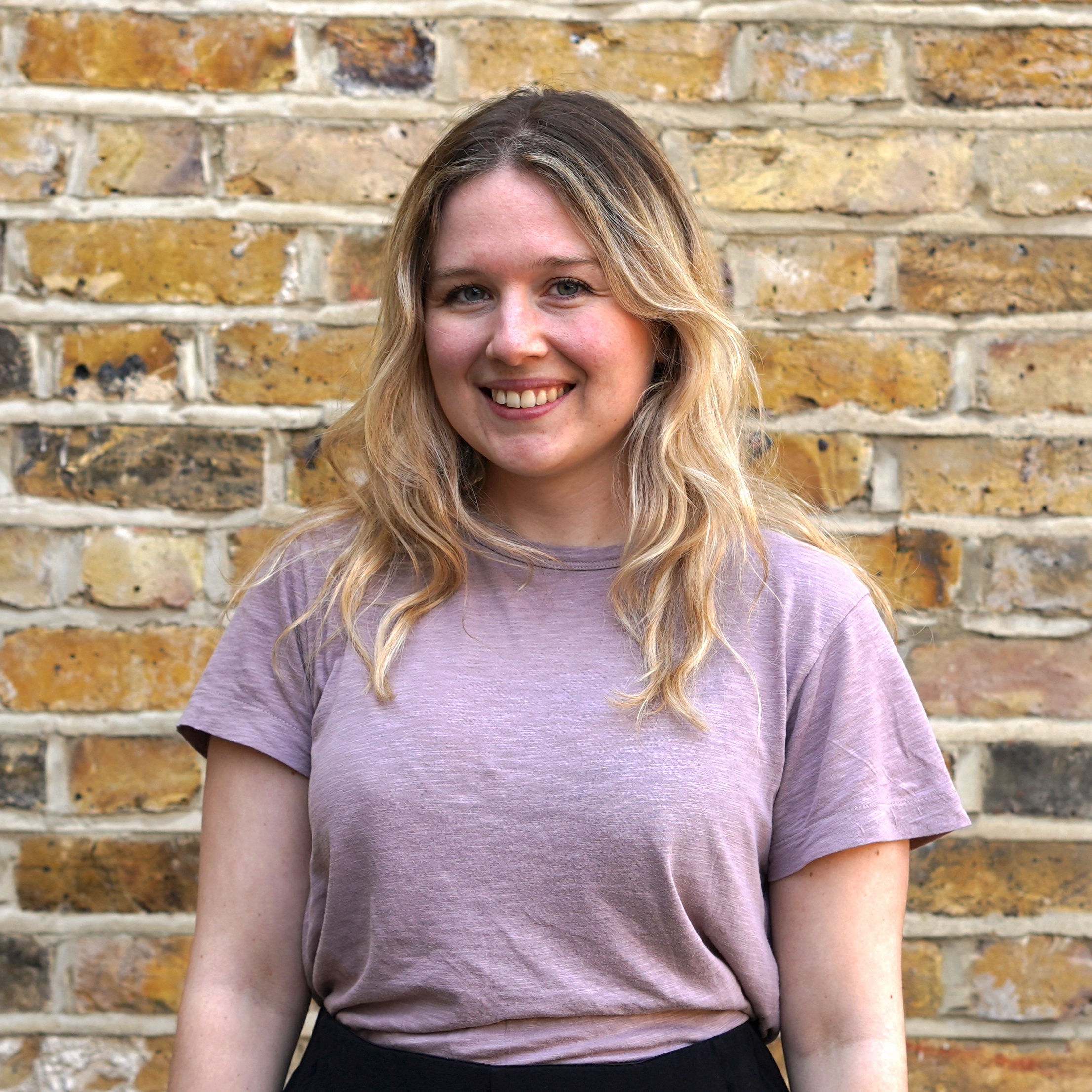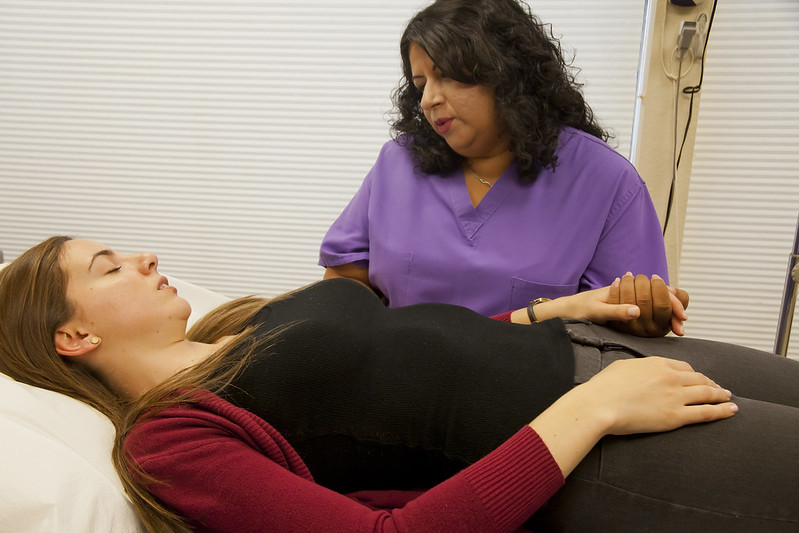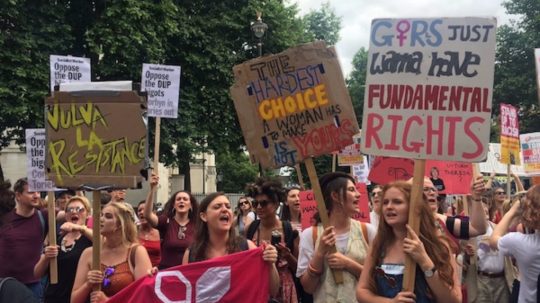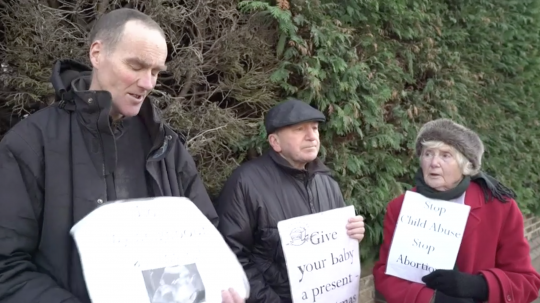TRIGGER WARNING: Please note that this piece includes language and themes of abortion and domestic abuse that some may find triggering.
Women in Britain, including those experiencing domestic abuse, are facing prison time for having an abortion. Despite abortions being lawful under the Abortion Act 1967, some abortions are still criminal offences under the complex law. Now, civil liberty groups are calling on the Crown Prosecution Service (CPS) to decriminalise abortion.
In the last five years, 34 people have been reported to the police for procuring criminalised abortion in England and Wales, with figures rising year on year. Two women are facing prison for having an abortion right now.
The Abortion Act 1967 partially decriminalised abortions. It made the practice lawful in England, Wales and Scotland up to the 24th week of pregnancy, but only when two doctors agree that continuing a pregnancy risks harming the woman’s mental or physical health. Doctors can also sign off on abortions at any point if they consider there to be serious risk to the woman’s life, or in cases where there is a substantial risk of foetal abnormality or serious disability.
‘Victorian laws’, still in place today, make it illegal for an abortion to be carried out without the approval of two doctors in England and Wales. Under the Offences Against the Persons Act 1861, anyone who has an abortion or helps someone have one without medical supervision is committing a crime. The offence can carry a maximum life sentence.
In Scotland, legislation is similar but is guided by common law instead. However, in Northern Ireland, where the 1967 Act has never applied, abortion was completely illegal under the Offences Against the Persons Act until 2019, when it was repealed under the Northern Ireland (Executive Formation etc) Act. This enabled lawful provision of abortion services, but access remains limited.
Abortion and the right to health
A United Nations treaty body ruled that denying access to abortion violates the right to health under the Convention on the Elimination of Discrimination Against Women. The Committee on Economic, Social and Cultural Rights has stated that countries have obligations to provide citizens with access to sexual and reproductive health, which includes access to safe abortion.
Other treaty bodies have also found that denying access to abortion can infringe on the right to privacy, the right to be free from cruel, inhumane and degrading treatment and can amount to discrimination against women. Before the change in legislation in Northern Ireland, the Belfast High Court ruled that laws governing abortion in Northern Ireland breached Article 8 of the European Convention on Human Rights, the right to a private life.
Calls for decriminalisation
Medics, lawyers and civil liberty organisations have called on Max Hill QC, the director for public prosecutions at the Crown Prosecution Service (CPS), to decriminalise abortion.
In a letter sent to Hill last month, 66 organisations, including the Faculty for Reproductive and Sexual Health, which sets clinical standards for the NHS, urged the CPS to stop the prosecution of women getting an abortion “with immediate effect”.
They said: “Whilst the number of women investigated and prosecuted for ending a pregnancy is small, we believe that the CPS is investing an undue amount of resource in criminalising some of the most vulnerable people in society.”
The End Violence Against Women coalition has previously said that women who are experiencing domestic abuse are more likely to need an abortion, but they face additional barriers accessing them. The Sunday Times reported last month that a woman spent two years in prison after procuring pills online for an abortion. The woman said that her abusive boyfriend would not let her go to the doctor.
The letter continued: “We believe that, in 2022, it is never in the public interest to charge women who end their own pregnancy, and that no woman should face investigation or prosecution for ending a pregnancy or experiencing unexpected or unexplained pregnancy loss.”
Pandemic abortion measures to be scrapped
During the pandemic, parliament passed a temporary measure for women to be able to take abortion pills at home without first attending an appointment at hospital or a clinic if they had an online consultation with a doctor. Before this, women had to attend a medical service in-person to take the first pill.
But the measure will be scrapped later this month. Clare Murphy, chief executive at the British Pregnancy Advisory Service (BPAS) said in February that revoking the measure would be “disastrous for women”, and would “willfully ignore” clinical evidence showing that the service is “safe, effective, and world-leading”.
“The revocation of telemedical abortion care would force vulnerable women in the most difficult of circumstances, who cannot access in-clinic treatment, to resort to illegal methods again and face criminal sanction as a result,” added Murphy.
Maggie Throup, health minister, said in parliament: “After careful consideration, the Government’s view is that the provision of early medical abortion should return to pre-COVID arrangements. The wellbeing and safety of women requiring access to abortion services has been, and will continue to be, our first and foremost priority.”





